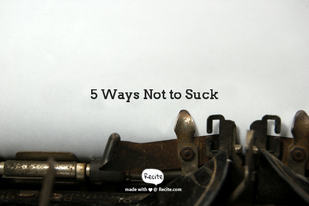A, because the last few weeks on here have been all about short fiction, and that was a direction that got decided for me by someone else. You have no idea how much easier that is. And B, my book just came out in print and simultaneously a bunch of other commitments in my life popped up and made it hard to get away from my email long enough to accomplish anything.
Anyway, that's enough excuses, let's get to why we're all here today. Also, I'm possibly not as sorry as I should be for how uncomfortable today's topic is going to be for everyone.
Why Representation matters, even when you don't think it does.
Internation Women's Day was earlier this week, and last month was Black History Month, so there have been a lot of people talking about representation. Not just because of those things, obviously. The corner of the interwebs I live in spends a lot of time talking about representation. About eighty percent of that conversation is about the representation of women in media, and then the other twenty seems to be about people of color.
And today I'm going to tell you a story that possibly makes me sound like a privileged idiot and then you get another 5 Ways Not to Suck list. You're welcome.
This bits all about me, you're welcome to skip.
Now I'm not going to spin you some grand story about how racist it was, and my experiences with the local Klan and... First of all, I'd be the worst person in the universe to do any of that around because everybody in town knew my parents and I can't imagine the fallout of someone being overtly racist around me. My dad is that kind of person who is quiet and unbelievably scarier for that fact. When I was properly little he worked at the newspaper, and when I was older he worked at the community college, and I don't think anybody at either place would have been at all confused about his stance on race.
And second, the large majority of the racism I was exposed to was the institutionalized, quiet kind. I grew up the child of liberal parents in a seriously conservative place. Everything I heard from every teacher my entire childhood was about how racism was wrong and people were just people and everyone had value. Except poor people on welfare or rich people.
But everything I knew about people who weren't white came from media.
Sure, there were non-white kids in my class. About ten percent, obviously. There were kids who turned out to be gay (heheh, after we left town). And I was friends with a few of them, even when we were really young. I suspect their experiences were vastly different than mine. I remember, clearly, the way people reacted to the kids of color who didn't...do all the right things.
But if you ask me to picture an Asian family I knew before I started college the best I can do is either The Joy Luck Club or Lethal Weapon 4. Most of my understanding of the reality of race in America comes from Maya Angelou and Zora Neal Hurston. I never heard anything disparaging about Native Americans and I still inherently have a hard time understanding why that's a thing.
There were situations I didn't realize were a factor of that inherent bigotry until I was well past them. Most of high school people asked me quietly shitty questions about whether or not several of my friends were gay, and I never gave that the weight it should have. A religious official gave me the most poisonous response to a volunteer request you could imagine, and I shrugged my shoulders and accepted it. A close friend got in serious trouble with the law and wound up on the sex offender registry for a thing that was ridiculously super common because he was mixed race and his girlfriend was white.
I don't know if this next bit was all my dad, but I suspect it kind of was. Someone had to remind a small town desperate for some kind of claim to fame that we had a former resident who'd gone on to become Hollywood's first major black director, won a Spingarn Medal from the NAACP in 1972, and a National Medal of Arts in 1988. I'm not going to say a lot about Gordon Parks because I degenerate into rage filled noises and angry eyebrows really quickly, but I met him once. I've never seen a famous person so uncomfortable in a room full of white people. But he shook my hand and said "Your dad is a real special guy."
So, having said all that, now we get to the uncomfortable part. I try to be honest on here, even when it's not necessarily flattering.
With all the talk in the world about representation and the way people express opinions everywhere I hear/see/read a lot of "I'm not racist." I never say it, because I am. Am I as racist as I was at twelve and I'd somehow picked up the idea people of color in cities just didn't try hard enough? Thank f*ck, no. How about eighteen, when I thought race wasn't a thing and only democrats complained about it? No again, thankfully. Twenty-five, when I bought the prevailing opinion around me that the Civil War was about so much more than slavery and the southern dependence on owning other people was legitimate?
Some days literally every time I open my mouth I have to check myself. Because there's a line somewhere between my freedom of expression and someone else's right to not be reminded the world hates them, and I'm never sure where it is. Now, at thirty-something, I seem to be inclined to put it on their side. I've got no clue what'll happen in another ten years.
So, back around to what started all this. Representation in fiction and why it's important.
If you ask me to close my eyes and picture a Native American, I see an old woman struggling to tell a story about what life was like on the prairie before the white people showed up. She'd proud and she's funny and she's lived a full life of really amazing experiences. An African American? It's a girl struggling through the utter shitbag that is her life and trying to find something positive to hold on to because she can and she deserves to be happy. The most powerful, most lasting representations are the ones that come from people telling their own stories, even if that's through a lens of fiction.
BUT...that's no excuse not to try. Just because it's hard and it makes you uncomfortable is no reason to populate your fictional universe with white people.
With that in mind, we're moving on to the next bit (and I am sorry about how long this post is turning out to be).
If you still exist in a place internally where you can't describe a minority.marginalized person of any stripe to me, as a character, without making them a walking stereotype then... Well. A) feel free to walk away from this and I give you permission to write all about you. And B) just, you know, um... Not to be mean but I'm not really interested in reading it. Have a nice day.
Way #2: Think Before You Speak.
If the reverse of whatever you're about to say would insult the piss out of you, you should probably think about that. I was taught a standard rule for this in college. If you wouldn't say it to an actual person's face, or you would feel the need to start your comment with "I'm not racist, but" then you're going to be racist and insulting.
Way #3: Research.
I know, it's hard sometimes. But here's the thing. A lot of minority culture, in the US and also I suspect everywhere else in the world, get's sort of...skipped in your general schooling. So, if you've got a character who's black there's a very real chance the Harlem Renaissance had an even larger impact on their life than it does on yours.
If I've said that and you don't realize the Harlem Renaissance had an impact on your life then I have to wonder if you've ever been to a dance hall or had a cocktail or lamented the fact you couldn't buy booze on a Sunday in the midwest. History is a strange twisty creature, and that should never be underestimated.
Way #4: Say it With Me, People are People are People.
In a very real way the same things that motivate you--yes you, right now, whoever you are--motivated literally every other sentient being that has ever or will ever exist. Sure, the externals can be different. The ways we respond to those motivations generally are different. But I promise you there was at least one sixteen-year-old girl in Rome in 160 AD who just really wanted the guy selling fruit down the block to like her. There was at least one twelve-year-old boy living in a slave cabin in Georgia in 1845 a little confused about why he found Joseph next door so attractive.
There was equally the utter flipside of that. A sixteen-year-old girl on baby number 3 and husband number 2, and a twelve-year-old boy who couldn't conceive of not being a slave, and both as contented with that situation as they'd been trained to be.
Way #5: Accept That Failure is a Learning Experience.
Inevitably, in the course of pulling up your underoos and getting into the guts of telling a story about people that aren't you, you're going to f it up. You're going to mishandle something, or have to spend a lot of time explaining why John calls X people X name because he's a bigot. (Or conversely, John is not a bigot, John is a human being in 1890 and that was the term literally every white person used. You'll still have to explain it.)
You should have to explain it. If you're not ready to explain it go back up to #1 and have a good hard think. And even when it's uncomfortable, think about the things people are telling you. More and more I'm convinced, as a society, that we learn not to be shitheads because people tell us not to be shitheads.
Remember, it might have taken Brazil until 1890 (or 1888, depending on who you ask), but everyone made it on the Slavery Is Bad train.
OKay. That's enough out of me today. Come back Friday and I'll come up with some kind of linked post that for this. Or, you know, suggest something. That'd be nice too.
Slight Edit: So I was going back through here and I reread this post and realized when I told you about those awesome books I probably should have told you the title, and not just assumed you'd know them. The Native American book I referenced is Pretty Sheild: Medicine Woman of the Crow and the other was Maya Angelou's I Know Why the Caged Bird Sings.


 RSS Feed
RSS Feed
